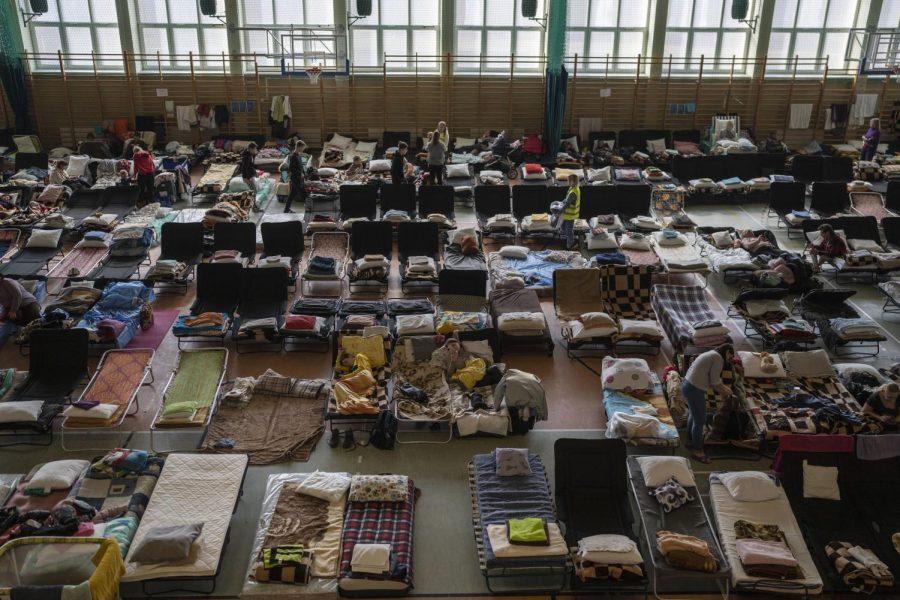Editorial | Countries should treat all refugees equally
People who fled the war in Ukraine rest inside an indoor sports stadium being used as a refugee center, in the village of Medyka, a border crossing between Poland and Ukraine, on Tuesday.
March 20, 2022
Russian officials predicted the invasion of Ukraine would be short-lived and victorious, but as they enter into their fourth week of fighting, the world is witnessing how strong Ukraine really is.
Despite the hundreds of thousands of people fighting for Ukrainian sovereignty — including volunteers who’ve enlisted from multiple countries — more than 500,000 citizens had fled the country just four days after Russian forces launched attacks. As of Saturday, that number has reached approximately 3.4 million in under a month’s time, while more than 6.5 million people remain internally displaced.
Even as white Ukrainians are openly received by neighboring countries, Black and brown people attempting to leave Ukraine are facing obstacles, including seemingly racist treatment. A student from Morocco said he was initially prevented from entering a train station, and once he and other “foreigners” were allowed through, they were told they must pay for the train’s services, unlike white passengers.
In response to the massive refugee crisis unfolding in Europe, countries such as Poland and Hungary have welcomed those forced to leave their homes — the very same countries which took a hostile position on welcoming refugees from other parts of the world.
The hypocrisy playing out in front of us indicates that certain refugees — those that are primarily white and European — are seemingly categorized as more worthy of refuge than those with a darker complexion. All refugees are worthy of a safe shelter and should be treated equally.
The Polish government has allowed more than two million Ukrainian refugees to enter the country seemingly unrestricted for 180 days. But in a 2015 deal established by the European Union to allocate 160,000 refugees across member states, Poland and Hungary both refused to host refugees. Opinion polls from the time found that approximately 75% of Poles were against accepting refugees from Africa or the Middle East.
Meanwhile, Hungarian Prime Minister Viktor Orban has defended his country’s stance on accepting Ukrainian refugees, but denying ones from places like Syria and Afghanistan, saying, “Migrants are stopped. Refugees can get all the help.”
These sentiments from Poland and Hungary reveal the seeming bias interfering with humane decision-making, leading to human suffering and even death.
In life-or-death situations, prioritizing people based on nationality and skin color is especially insidious, and a gross example of discrimination — something that historian Kimberly St. Julian Varnon said in an interview with CBS News is “one of those things where … racism isn’t new, I mean, racial discrimination is not new, but to see it on display and being exacerbated by war, it was just really heart-wrenching.”




